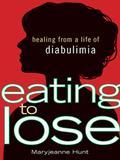In the last five years, the number of people suffering with eating disorders has more than doubled. According to the American Diabetes Association, diabetic women are nearly three times more likely to develop an eating disorder than non-diabetic women. Diabulimia, one of many eating disorders, is the dangerous and often fatal practice of altering or omitting insulin to lose weight. The uncanny link between diabetes and eating disorders is irrefutable. Diabulimia is an eating disorder in which people with Type 1 diabetes deliberately give themselves less insulin than they need, for the purpose of weight loss. Often, people with Type 1 diabetes who omit insulin injections will have already been diagnosed with an eating disorder such as anorexia nervosa, bulimia nervosa and/or compulsive eating. Diabulimia can be triggered or exacerbated by the need for diabetics to exercise constant vigilance in regard to food, weight and glycemic control. The frustration of managing blood sugars and their subsequent effects on weight and self perception (altered by dealing with a chronic illness) can also be damaging to self-esteem and body image. Here's the inherent irony: While diabetes treatment necessitates heightened awareness of food, rehabilitating an eating disorder almost always involves the opposite, deliberately minimizing focus on food. It is a catch-22. Intensifying the toxicity of this relationship even further, eating disorders exacerbate the complications of diabetes (blindness, kidney disease, heart disease, neuropathy and amputations), and diabetes exacerbates the complications of eating disorders (isolation, emotional eating, obsession with food and body weight). It is a life threatening partnership. Eating to Lose is one woman's memoir her journey from illness to recovery, and carves a pathway of hope and empowerment for the millions who continue to suffer with diabulimia. Eating to Lose is written for them, and perhaps even more importantly it is written for thei


